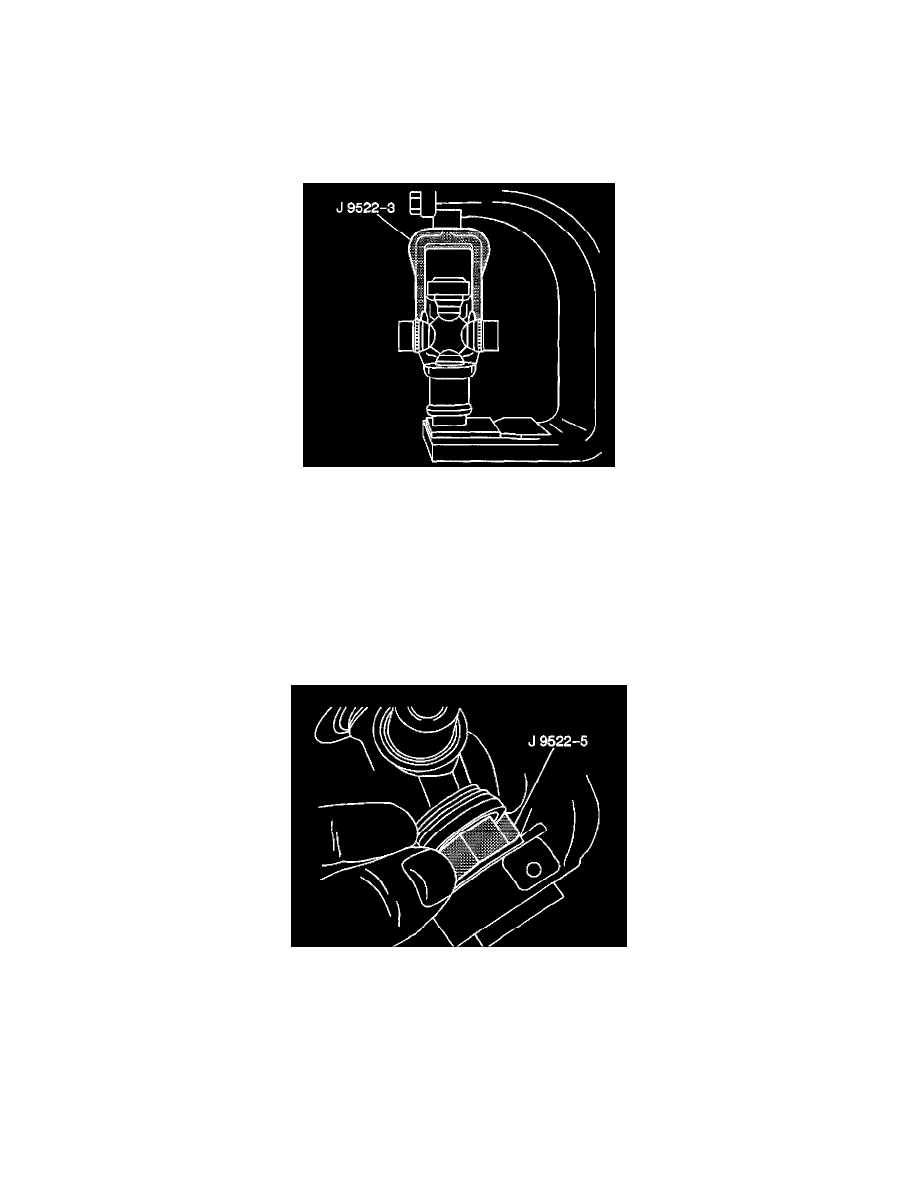C 2500 Suburban 2WD V8-454 7.4L VIN J SFI (1998)

Universal Joint: Service and Repair
Universal Joints Replacement (External Snap Ring Type)
DISASSEMBLY PROCEDURE
-
Tools Required
-
J9522-3 Universal Joint Bearing Separator
-
J9522-5 Universal Joint Bearing Spacer Remover
1. Support the propeller shaft in a line horizontal with the table of a press.
NOTICE: Never clamp propeller shaft tubing in a vise. Clamping could dent or deform the tube causing an imbalance or unsafe condition.
Always clamp on one of the yokes and support the shaft horizontally. Avoid damaging the slip yoke sealing surface. Nicks may damage the
bushing or cut the lip seal.
2. Mark the propeller shaft in order to show which end connects to the transmission and which end goes to the rear axle.
3. Disassemble the snap rings by pinching the ends together with a pair of pliers.
4. If the ring does not readily snap out of the groove in the yoke, tap the end of the cup lightly in order to relieve the pressure from the ring.
5. Place the universal joint so that the lower ear of the yoke is supported on a 30 mm (1 1/8 inch) socket.
6. Place J9522-3 on the open horizontal bearing cups and press the lower bearing cup out of the yoke ear.
7. If the bearing cup is not completely removed, lift the cross and insert J9522-5 between the seal and bearing cup being removed and continue
pressing it out of the yoke.
8. Rotate the propeller shaft and press the opposite bearing cup out of the yoke.
9. Mark the orientation of the slip yoke to the tube for proper reassembly.
10. Remove the cross from the yoke.
11. Remove the remaining the universal joint parts from the yoke.
12. If the front universal joint is being replaced, remove the bearing cups in the slip yoke in the same manner.
13. Inspect the retaining ring grooves for dirt, corrosion, or pieces of the old ring.
14. Inspect the bearing cup bores for burrs or imperfections.
15. Clean the retaining ring grooves. Corrosion, dirt, rust, or pieces of the old retaining ring may prevent the bearing cups from being pressed into
place or prevent the bearing retainers from being properly seated.
